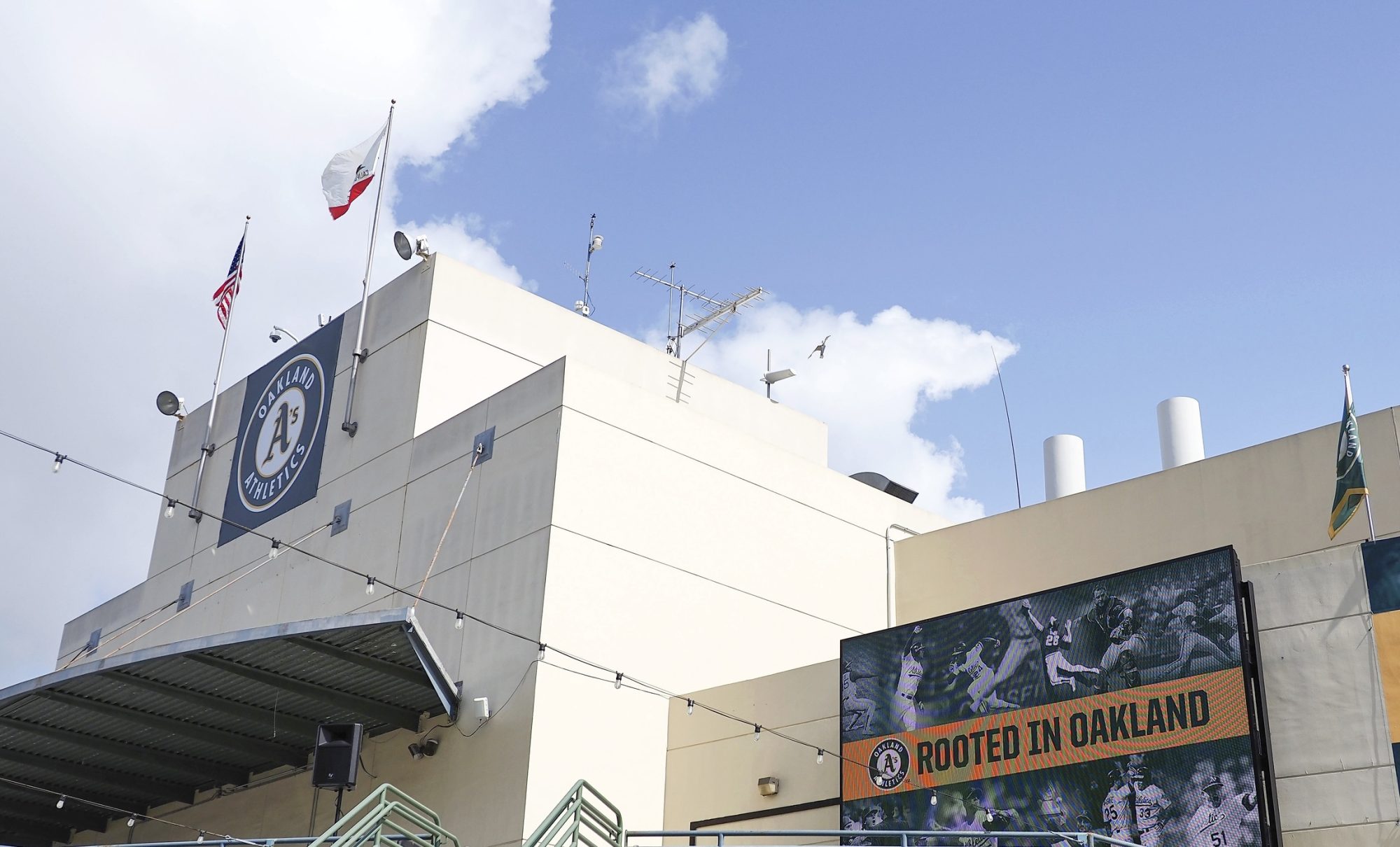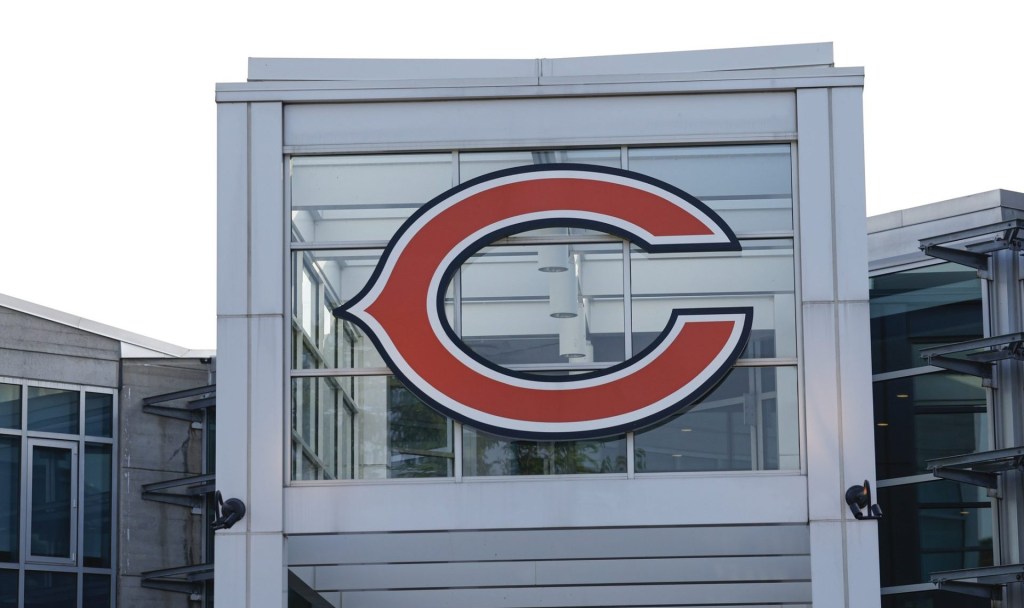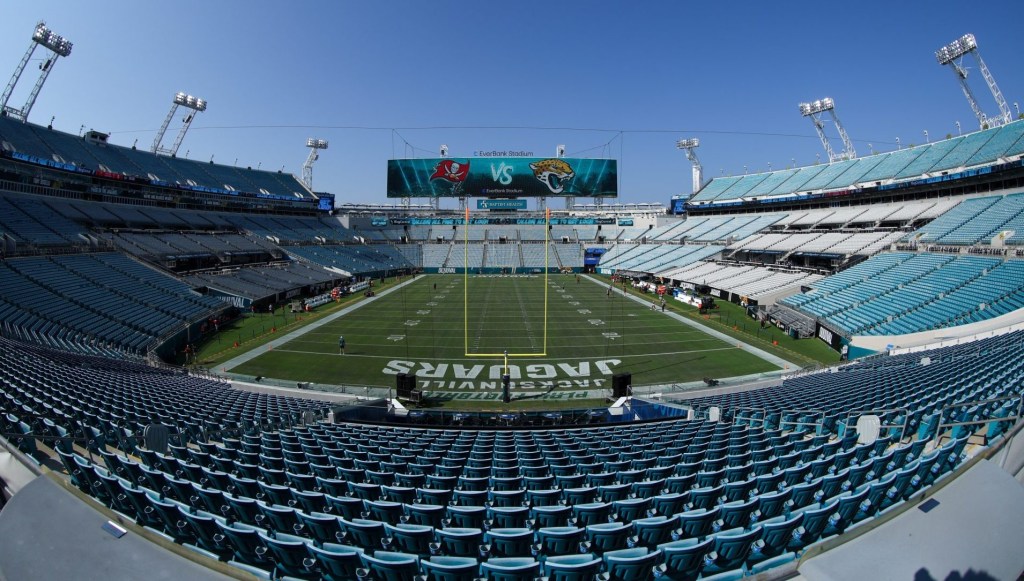The City of Oakland announced it has agreed to sell its half of the Oakland Coliseum site to a private developer Wednesday. The deal will reach a minimum of $105 million, which will help the city make up a two-year, $177 million budget deficit.
Ownership will transfer to the African American Sports & Entertainment Group, an Oakland-based developer that wants to turn the Coliseum site into a sports, entertainment, education, and business district, and form “the first majority Black owned NFL franchise here in Oakland,” according to its website. The group also wants to build affordable housing and outdoor space, as well as preserve the next-door Oakland Arena, where the Warriors won three NBA titles, according to the announcement’s press release.
AASEG has been trying to get its hands on a professional sports team in the Bay Area since it was founded in 2020. The group vied for a WNBA team to play in the Coliseum Arena, even partnering with player turned entrepreneur Alana Beard, but the bid went to the Warriors owners. The group has also announced it’s considering bidding for an NWSL franchise.
Oakland mayor Sheng Thao praised AASEG’s long-term vision in a not-so-subtle shot at the A’s on Wednesday. “It takes a partner that understands that there is a return on investment that doesn’t necessarily show up on that balance sheet. That it’s just not all about the money, but it’s about the community and making sure that they’re thriving,” she said during a press conference.
The A’s still own the other half of the site, which AASEG has been trying to acquire since last year, but it’s a messy situation. The team bought its share of the Coliseum from Alameda County for $85 million in 2019. It was only last week paid in full, and pending litigation seeks to invalidate the sale entirely.
AASEG made the A’s a $115 million offer for the team’s half of the site in September, which was rejected, but the two sides picked discussions back up earlier this year. Ray Bobbitt, the founder and managing member of AASEG, said during Wednesday’s press conference that the group is in “healthy negotiations” with the A’s that are “moving in a positive direction.” The A’s claimed to want an upgrade in Oakland on the updated stadium for years, but ultimately will move to Sacramento’s Triple-A ballpark next season. The team says it’s a temporary stop before moving to Las Vegas later this decade.
For Oakland’s part, it’s the latest in the city’s severing from major league professional sports. This is the A’s final season in the city. The Raiders left the Coliseum in 2019, while the Warriors moved out of the arena then known as Oracle to San Francisco the same year. (The new Bay Area WNBA team will practice in Oakland but play games in San Francisco.)
Oakland’s two-year, $177 million spending gap is mostly due to a dip in tax receipts, according to the San Francisco Chronicle, although police went $25 million over on overtime spending as well. The extra cash will help the city avoid dozens of police and civil servant layoffs, and the closure of three police academies and four fire stations, which were anticipated before the sale, officials told the Chronicle.
“The budget deficit is not the reason for the sale,” a city spokesperson wrote in an email to Front Office Sports, pointing out that the deal has been in the works for years. “However, it is fair to say that proceeds from the sale will be used to address the budget deficit.”
The decision now moves to Oakland City Council to pass an ordinance allowing the City Administrator to sign the deal.
“It’s important that if it’s going to be privately owned now, it’s going to be back on the property tax rules,” Neil deMause, a journalist who runs the influential stadium funding blog “Field of Schemes” and wrote a book of the same name, tells FOS. “It’s not just the $105 million that Oakland’s going to get to pocket right now, but there is going to be some money that’s going to be flowing in from it annually in the future, and that’s always a plus.”
The Oakland spokesperson confirmed that the city would again be receiving property taxes on the land once the sale went through.
Still, deMause and another expert in the economics of stadium development, the University of Colorado Denver’s associate professor Geoffrey Propheter, said the deal might not have been as large as it could be.
Propheter tells FOS, “105 million dollars strikes me as relatively cheap for land next to the water in the Bay Area.”
“It gets the land back on the property tax rolls and it gets a headache off of Oakland’s plate, and it maybe gets it developed at some point,” deMause says. “It’s at least a step forward. I’m not going to say yet whether I think it’s the best step forward, but it’s a reasonable thing to do.”





![[Subscription Customers Only] Jun 15, 2025; Seattle, Washington, USA; Botafogo owner John Textor inside the stadium before the match during a group stage match of the 2025 FIFA Club World Cup at Lumen Field.](https://frontofficesports.com/wp-content/uploads/2026/02/USATSI_26465842_168416386_lowres-scaled.jpg?quality=100&w=1024)
![[Subscription Customers Only] Jul 13, 2025; East Rutherford, New Jersey, USA; Chelsea FC midfielder Cole Palmer (10) celebrates winning the final of the 2025 FIFA Club World Cup at MetLife Stadium](https://frontofficesports.com/wp-content/uploads/2026/02/USATSI_26636703-scaled-e1770932227605.jpg?quality=100&w=1024)










